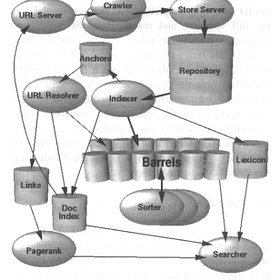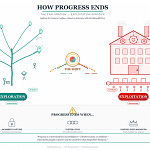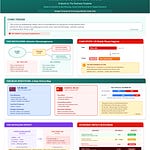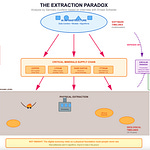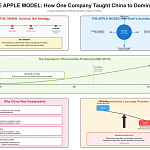The rise of AI is poised to fundamentally reshape the future of the search industry in several key ways.
First, AI-native search, exemplified by tools like Perplexity AI, represents a paradigm shift from traditional search engines like Google.
While Google's dominance was built on crawling, indexing, ranking, and serving the most relevant web pages via its iconic "Ten Blue Links" AI-based engines operate differently.
NotebookLM AI hosts tackle the topic covered in what’s coming in a post-Google world!
The Post-Google World!
The shift to AI-native search will be one of these “slowly, then quite suddenly” moments of mass consumer behavior change!
Instead of retrieving static content, AI tools generate dynamic responses on the fly, utilizing curated datasets with Retrieval-Augmented Generation (RAG) to ensure accuracy and relevance.
This shift from static to dynamic content delivery signifies a fundamental change in how users interact with search engines.
Moreover, AI-powered search engines enhance user reasoning capabilities by providing context and follow-ups, enabling users to ask deeper and more insightful questions.
This shift empowers users to engage in a non-linear UX, moving away from the traditional linear approach of refining search queries based on initial results.
The user experience benefits of AI-native search are significant. Users can expect faster, more relevant answers, the ability to ask deeper questions, and a 10-20x improvement in overall user experience.
This paradigm shift poses challenges for Google. While the company has integrated AI features into its search engine, such as AI Overviews using its Gemini model, these efforts remain tied to its traditional model.
These incremental AI features may not be sufficient to address the long-term challenges posed by AI-native competitors.
Google faces the "Steve Jobs Dilemma", needing to potentially cannibalize its own core product to adapt to the disruptive changes brought about by AI.
While search will remain relevant, its dominance may wane as AI-native engines redefine content discovery and user interaction. Search could become a narrower niche within a broader AI-driven ecosystem.
The transition to a post-Google world in search will likely occur in three phases:
Phase 1: AI enhances existing search paradigms while leveraging current frameworks.
Phase 2: AI-native search establishes itself as a distinct market.
Phase 3: A new ecosystem emerges, combining hardware and software with novel business models, fundamentally redefining the market.
In conclusion, the future of the search industry is moving towards an AI-driven paradigm that prioritizes dynamic content generation, enhanced user reasoning, and a significantly improved user experience.
Traditional search engines will need to adapt radically to remain relevant in this evolving landscape.
Full coverage:
Read Also
With massive ♥️ Gennaro Cuofano, The Business Engineer



